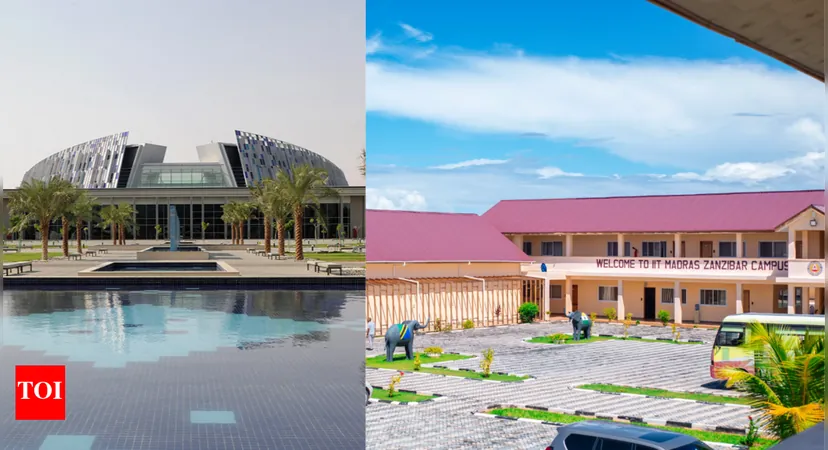
Revolutionizing Malaria Prevention: UAEU and IIT Madras Zanzibar Unveil AI-Powered Outbreak Prediction Framework
2025-08-16
Author: Siti
A Groundbreaking Development in Global Health
In an exciting advance for public health, researchers from the United Arab Emirates University (UAEU) and IIT Madras Zanzibar have unveiled an innovative AI-driven framework designed to predict malaria outbreaks with remarkable accuracy. This powerful tool, which fuses neural networks, mathematical models, and climate variables, aims to enhance real-time risk assessments and facilitate early interventions in malaria-affected regions, particularly across sub-Saharan Africa where nearly 94% of global cases occur.
Transforming Malaria Forecasting Through Advanced Technology
Led by a dynamic research team including Adithya Rajnarayanan, Manoj Kumar, and Professor Abdessamad Tridane, this collaborative effort has redefined how malaria transmission is forecasted. Their research, detailed in the esteemed journal Scientific Reports, introduces a cutting-edge methodology that combines artificial intelligence with traditional epidemiological frameworks, thereby offering a more accurate simulation of malaria dynamics.
How It Works: The Power of Data-Driven Models
Titled "Analysis of a Mathematical Model for Malaria Using a Data-Driven Approach," the study incorporates temperature and altitude variables into compartmental disease models. This nuanced modeling is essential given the significant impact of environmental factors on malaria transmission in vulnerable regions. To elevate their predictive accuracy, the researchers implemented sophisticated AI tools, including:
- **Artificial Neural Networks (ANNs)** - **Recurrent Neural Networks (RNNs)** - **Physics-Informed Neural Networks (PINNs)**
These technologies work in concert to identify patterns in the intricate relationship between environmental conditions and malaria's spread. Additionally, they incorporated Dynamic Mode Decomposition (DMD) to simplify complex systems, ultimately generating a real-time infection risk metric that serves as a vital resource for health officials.
The Global Health Impact of Innovation
Professor Abdessamad Tridane emphasized this breakthrough, stating, "This research showcases the immense potential of AI when integrated with classical epidemiological models. By embedding environmental factors into our transmission functions, we can mirror the real-world complexities of malaria spread, providing timely and precise tracking methods." This innovative model holds particular promise for sub-Saharan Africa, which bears the brunt of malaria's devastating toll.
A Collaborative Effort with International Reach
The study is a product of collaboration between two institutions expanding their influence in global health research: UAEU, the UAE's oldest public university founded in 1976 by Sheikh Zayed bin Sultan Al Nahyan, and IIT Madras Zanzibar, the first international branch of IIT Madras, inaugurated in November 2023. Located in Zanzibar, Tanzania, this campus gears up to provide top-notch education in Data Science and AI to students from India, Tanzania, and beyond.
This groundbreaking research promises to enhance surveillance, improve early warning systems, and inform data-driven policymaking, marking a hopeful stride forward in the global campaign against malaria.


 Brasil (PT)
Brasil (PT)
 Canada (EN)
Canada (EN)
 Chile (ES)
Chile (ES)
 Česko (CS)
Česko (CS)
 대한민국 (KO)
대한민국 (KO)
 España (ES)
España (ES)
 France (FR)
France (FR)
 Hong Kong (EN)
Hong Kong (EN)
 Italia (IT)
Italia (IT)
 日本 (JA)
日本 (JA)
 Magyarország (HU)
Magyarország (HU)
 Norge (NO)
Norge (NO)
 Polska (PL)
Polska (PL)
 Schweiz (DE)
Schweiz (DE)
 Singapore (EN)
Singapore (EN)
 Sverige (SV)
Sverige (SV)
 Suomi (FI)
Suomi (FI)
 Türkiye (TR)
Türkiye (TR)
 الإمارات العربية المتحدة (AR)
الإمارات العربية المتحدة (AR)